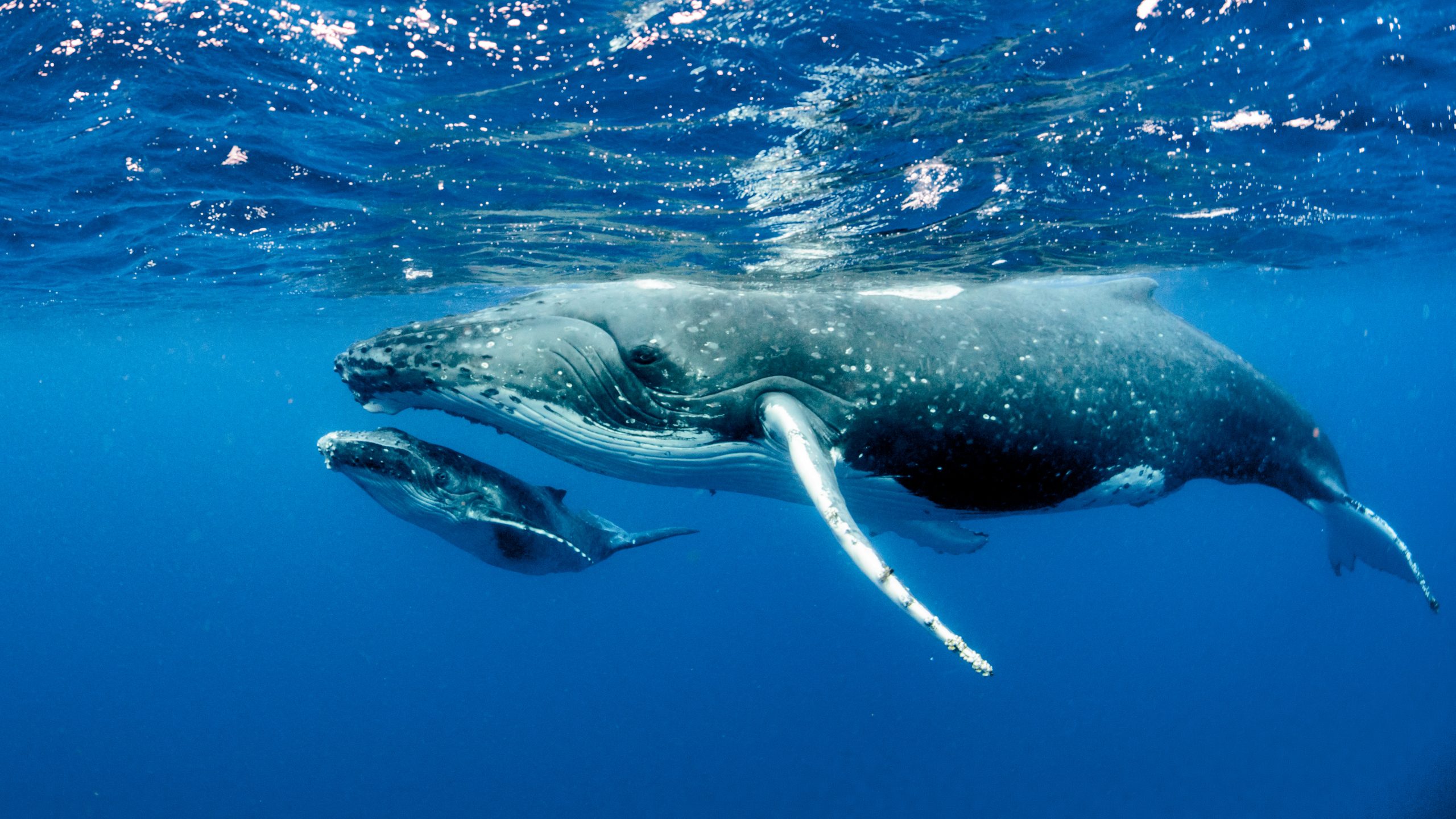Reduced marine traffic due to the COVID-19 pandemic has been beneficial for marine life
How does a week of eating an unlimited amount of food, laying under the sun, and waking up in a new country every morning sound? I bet you’re thinking that sounds pretty awesome after almost a year in quarantine. Until the COVID-19 pandemic hit, so did about 29 million people (Cruise Lines International Association (CLIA), 2019Links to an external site.). With their laid-back nature and ease of travel, cruise ships have been an increasingly popular method of travel in recent years.

Cruise ship docking at a tropical island port. Photo credit: orbitz.com
Unfortunately, if it sounds too good to be true, it probably is. There are many negative ecological consequences are associated with cruising. A case study by Caric (2011)Links to an external site. found that most ships, including cruise ships, burn “bunker fuel” – a much dirtier fuel than the gasoline used by cars. Combined with the fact that they have massive fuel requirements, cruise ships emit huge amounts of greenhouse gasses. Additionally, anti-fouling paint is used on the hulls of ships. This paint sheds toxic heavy metals into the waters which can be easily incorporated into marine food webs. Furthermore, noise pollutionLinks to an external site. from cruise ships has a direct impact on some marine mammals. For instance, whales rely on sounds for communicate and coordinate. ResearchersLinks to an external site. have found that whales are forced to work around the noise generated by loud ships passing by. In a similar manner to how people would communicate at a loud party, whales might get closer, repeat themselves, or wait until the noise settles down to communicate with each other.

Humpback whale and calf, one of multiple marine species which rely on sound for communication. Photo credit: Imagine Earth Photography/ Shutterstock.comLinks to an external site.
Due to the lockdowns and restrictions associated with the pandemic, cruises have not been in operation since March 2020Links to an external site.. Due to reduced marine traffic, researchers have observed a reduction in underwater noise at 3 out of 4 hydrophone stationsLinks to an external site. around Vancouver. It has been reported that the reduced noise pollution has enabled some marine mammals to have an easier time locating food and communicatingLinks to an external site..
Now that we know cruise ships have negative impacts on marine life and ocean waters, what can be done? It might sound like a good idea to banish all cruise ships, however, that’s not a very feasible solution. While doing so may help marine life recuperate and keep ocean waters significantly cleaner, there are economic and social factors to consider. The cruise industry employs approximately 1.2 million peopleLinks to an external site. worldwide. That’s a lot of people who would be impacted if the industry were to go under. In addition, the people living in coastal cities who rely on tourism will also suffer without the industry. Instead, we should think about transformative changes to make cruising more sustainable. Looking into cleaner forms of fuel, quieter engines, and more effective waste management is something to consider before the industry starts back up again. Recently, Carnival Corporation has been issued numerous multi-million-dollar fines due to their improper waste disposalLinks to an external site., highlighting the ineffective regulations in the industry. The cruising industry should consider ways to mitigate its impact on the ocean, especially considering one of its largest draws is the natural beauty of the world.
A cool video on how and why whales communicate: https://www.ted.com/talks/stephanie_sardelis_why_do_whales_sing/transcript?language=enLinks to an external site.
 icons at the top right corner of the subsection.
icons at the top right corner of the subsection.